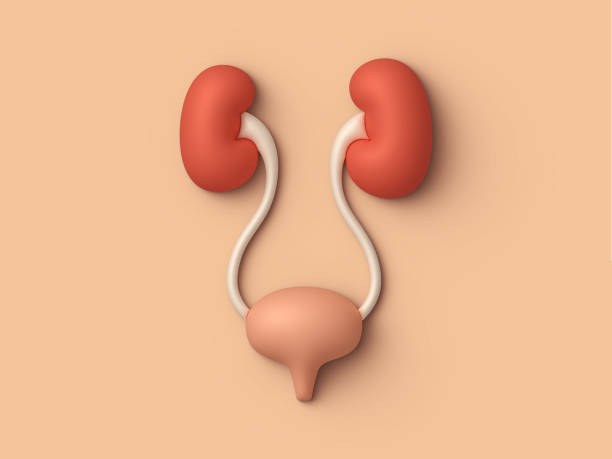
Welcome to Tulsi Wellness Club in San Diego, where we are dedicated to providing you with valuable information and holistic support for your health concerns. Today, we’re addressing an important topic: the relationship between interstitial cystitis (IC) and bloating. If you’re living with IC and experiencing abdominal bloating, it’s crucial to understand how these two issues might be connected and explore effective strategies to manage them.
What is Interstitial Cystitis?
Interstitial cystitis (IC), also known as painful bladder syndrome, is a chronic condition characterized by bladder pain, discomfort, and frequent, urgent need to urinate. Unlike a typical bladder infection, IC does not involve bacterial infection but rather results from inflammation or irritation of the bladder lining. Symptoms can vary in severity and may include:
- Persistent pelvic pain or discomfort
- Frequent and urgent need to urinate, often with small amounts of urine
- Pain during or after urination
- Discomfort or pain in the lower abdomen
Understanding Bloating
Bloating is a common symptom that involves a feeling of fullness, swelling, or distention in the abdominal area. It can be caused by various factors such as digestive disturbances, hormonal changes, or fluid retention. While bloating is not a direct symptom of IC, there are ways in which IC can indirectly contribute to feelings of bloating.
How Interstitial Cystitis Might Contribute to Bloating
-
Pelvic Pain and Discomfort: The chronic pain and discomfort associated with IC can sometimes radiate to the lower abdomen, which might be perceived as bloating. The persistent sensation of fullness or pressure can mimic bloating.
-
Frequent Urination: The need to urinate frequently and urgently can disrupt normal digestive patterns, potentially contributing to a feeling of bloating or abdominal discomfort.
-
Dietary Sensitivities: Individuals with IC often have to manage dietary sensitivities to avoid triggering symptoms. Certain foods that are problematic for IC, such as spicy foods, caffeine, or acidic foods, can also lead to digestive issues and bloating.
-
Medication Side Effects: Treatments for IC, including medications and supplements, can sometimes cause gastrointestinal side effects, including bloating, gas, or changes in bowel movements.
-
Stress and Anxiety: Chronic pain and the stress of managing a chronic condition like IC can impact the digestive system. Stress can exacerbate digestive symptoms, including bloating.
Managing Bloating with Interstitial Cystitis
At Tulsi Wellness Club, we believe in a holistic approach to managing both IC and bloating. Here are some strategies to help alleviate symptoms and support overall well-being:
-
Balanced Diet: Follow a diet tailored to your specific needs and sensitivities. Focus on anti-inflammatory foods that are gentle on the bladder, such as non-acidic fruits, vegetables, and lean proteins. Avoid known irritants like caffeine, alcohol, and spicy foods.
-
Hydration: Drink plenty of water to support bladder health and digestion. Staying hydrated helps maintain overall bodily functions and can aid in reducing feelings of bloating.
-
Stress Management: Engage in stress-reducing practices such as mindfulness, meditation, or gentle exercise. Reducing stress can help alleviate both IC symptoms and digestive discomfort.
-
Probiotics: Incorporate probiotic-rich foods or supplements into your routine to support gut health. A balanced gut microbiome can help improve digestion and reduce bloating.
-
Monitor and Adjust: Keep track of your symptoms and any potential triggers. A food diary can help identify dietary patterns that may contribute to both IC symptoms and bloating.
-
Consult a Healthcare Professional: Work with your healthcare provider to manage IC symptoms effectively. They can help adjust treatment plans and provide guidance on managing any side effects, including digestive issues.
When to Seek Professional Help for IC
If you’re experiencing persistent bloating or worsening symptoms despite making lifestyle changes, it’s important to consult with a healthcare provider. They can conduct a thorough evaluation to determine if there are other underlying issues contributing to your symptoms.
At Tulsi Wellness Club, our nautropathic doctors offer personalized consultations to help you navigate the complexities of managing interstitial cystitis and related symptoms. Our holistic approach aims to support your overall health and improve your quality of life.
Conclusion
While interstitial cystitis itself does not directly cause bloating, the associated symptoms and lifestyle factors can contribute to feelings of fullness or abdominal discomfort. By understanding these connections and adopting holistic strategies, you can better manage both IC and bloating. For personalized support and guidance, contact Tulsi Wellness Club in San Diego. We’re here to assist you on your journey to wellness.
Dr. Natasha MacLeay
Contact Me



